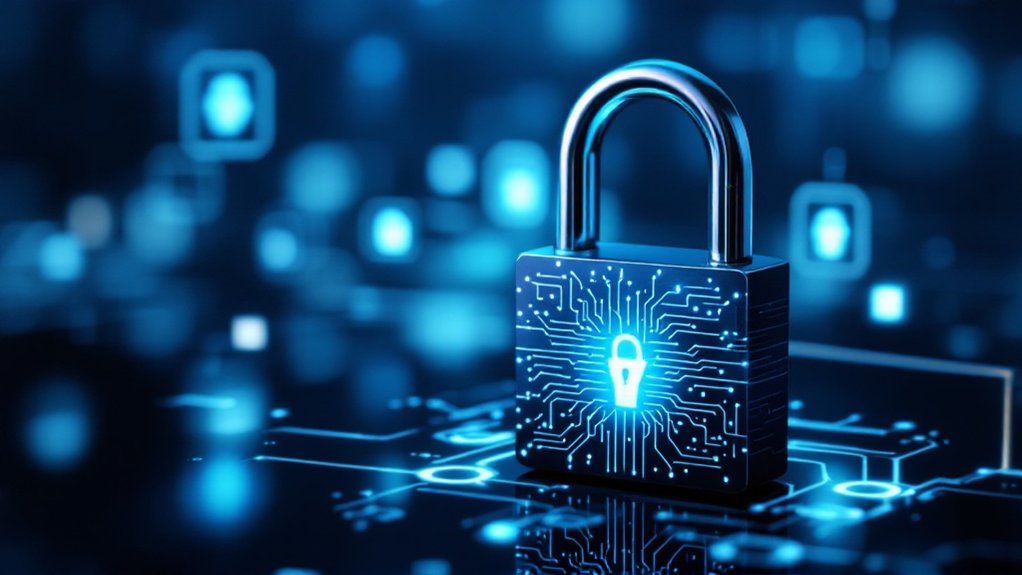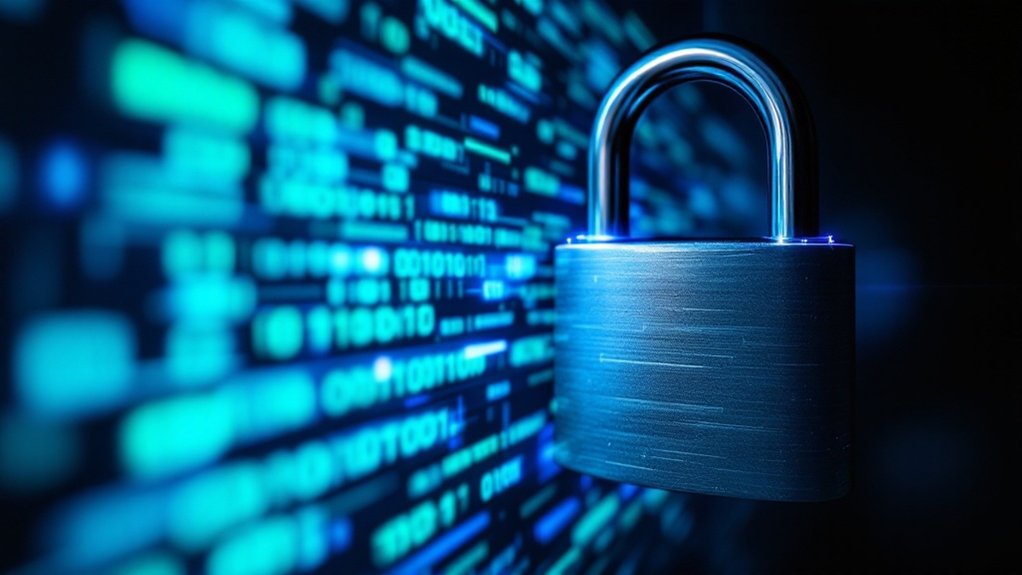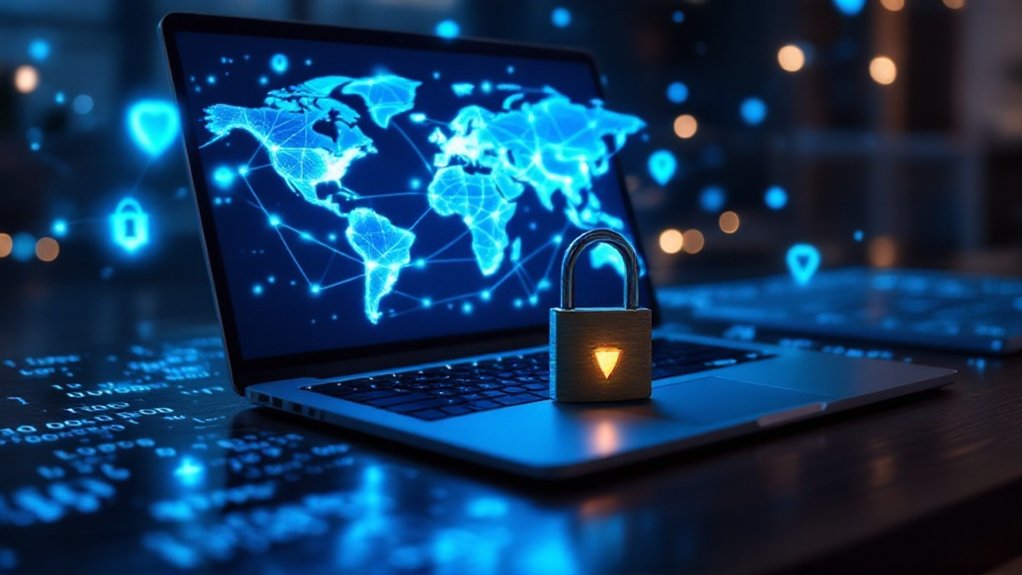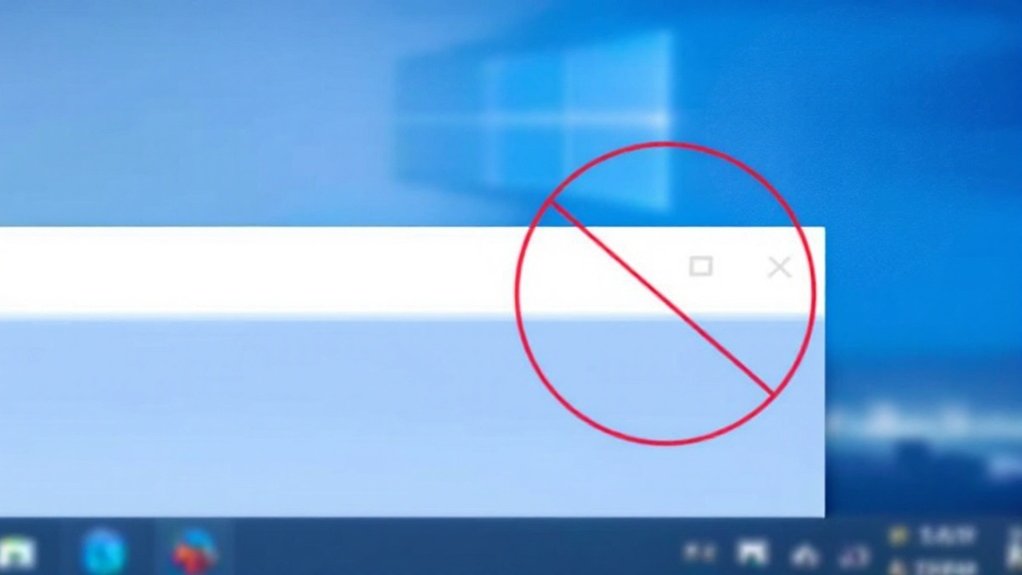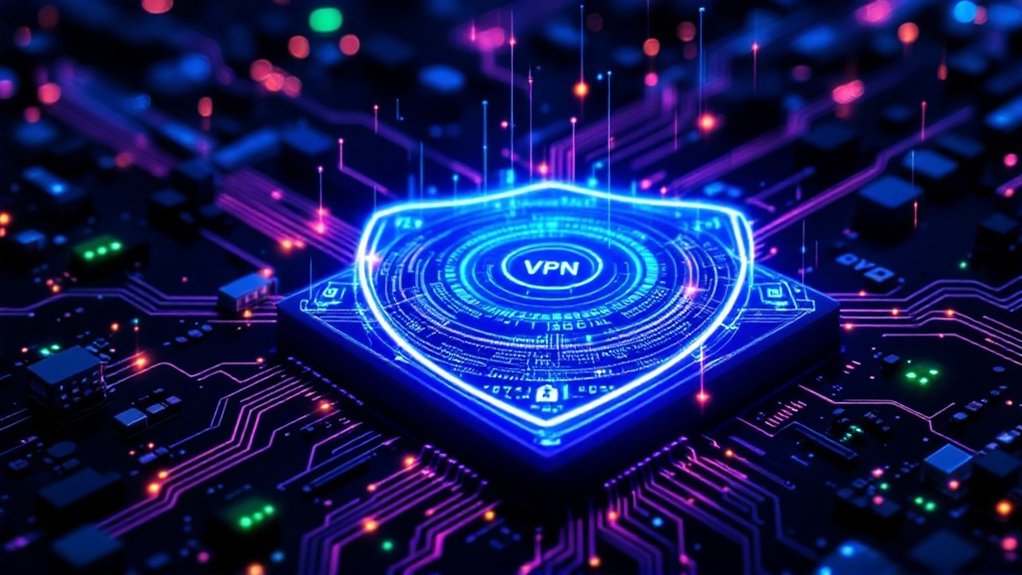ProtonMail delivers exceptional privacy protection through end-to-end encryption, Swiss data protection laws, and secure data centers with biometric controls. The service automatically encrypts all messages, blocks email trackers, and masks IP addresses, during storing user data exclusively in Switzerland or Germany. Though some limitations exist, including metadata accessibility and compliance with criminal investigations, ProtonMail’s commitment to user privacy, strict no-logging policy, and resistance to surveillance requests establish it as a leading secure email option. Understanding its thorough security features reveals why privacy-conscious users increasingly trust this platform.
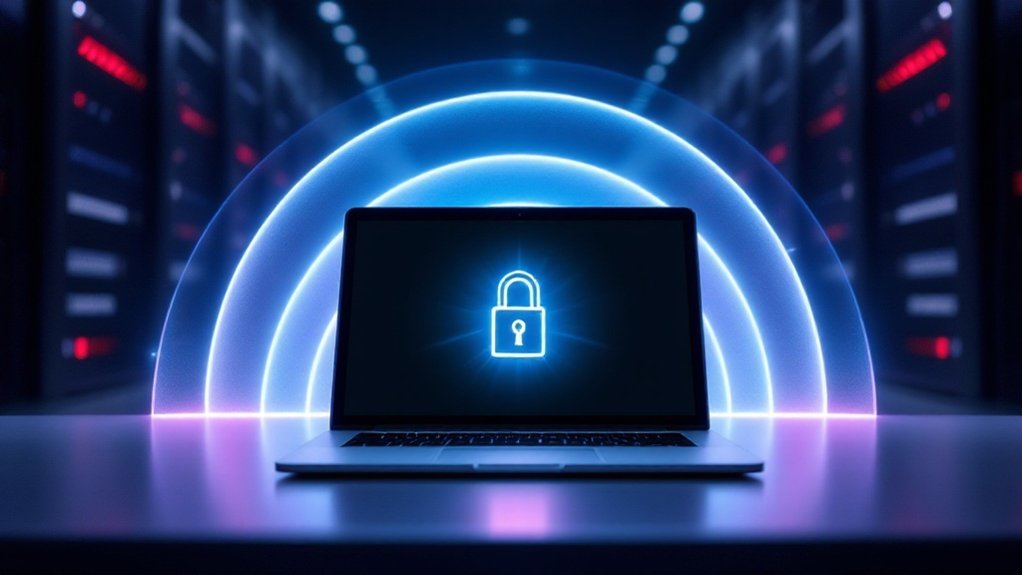
As mainstream email providers continue to face scrutiny over data privacy practices, ProtonMail has emerged as a leading secure email service, offering end-to-end encryption and thorough privacy protection features. The service, based in Switzerland, operates under strict privacy laws and maintains secure data centers with hardware-level security measures, including biometric access controls and fully encrypted hard disks with multiple password layers. Founded by CERN scientists, ProtonMail represents a significant advancement in secure communication technology.
ProtonMail’s encryption approach guarantees that only the sender and recipient can access email contents, with encryption occurring automatically without user intervention. The platform blocks email trackers by default, hides IP addresses from senders, and provides password-protected emails for communication with non-ProtonMail users, establishing a thorough privacy shield for its users. User data is stored in encrypted format on servers located in Switzerland or Germany. Traditional email protocols like SMTP transmit data in plain text making ProtonMail’s encryption essential for privacy.
When compared to major email providers like Gmail, ProtonMail offers superior security through its encryption practices and smaller attack surface. The service maintains a strict no-logging policy and operates without advertising, eliminating the need for data monetization that drives many mainstream email providers. Users retain full ownership of their data, and the platform’s open-source code undergoes independent security audits.
In spite of its strong security features, ProtonMail faces certain limitations. The service has previously disclosed IP addresses in criminal cases following court orders, and metadata, including sender, recipient, and subject information, remains accessible. Moreover, free users encounter restrictions on storage and features, necessitating paid subscriptions for advanced functionality.
The service’s commitment to privacy extends to its legal and ethical stance, operating from Switzerland to maintain independence from US and EU jurisdictions. Although ProtonMail complies with Swiss law for criminal investigations, it actively resists voluntary cooperation with surveillance requests and regularly publishes transparency reports detailing law enforcement interactions.
This positioning, combined with its technical security measures and user-centric approach, establishes ProtonMail as a significant player in the secure email service domain, in spite of its acknowledged limitations.
Frequently Asked Questions
Can Law Enforcement Agencies Access Protonmail Messages With a Court Order?
Law enforcement agencies cannot access ProtonMail message contents, even with a court order, because of the service’s zero-access encryption system.
Although Swiss authorities may compel ProtonMail to provide metadata, IP addresses, and device information through legal processes, the end-to-end encryption guarantees that email contents remain inaccessible to both ProtonMail and law enforcement, as only the sender and recipient possess decryption keys.
Does Protonmail Work With Other Email Providers Like Gmail or Outlook?
ProtonMail integrates effortlessly with major email providers through its Bridge application, which facilitates IMAP/SMTP functionality with Outlook, Gmail, and other services.
Users can import existing emails via the Easy Switch tool and set up automatic forwarding from Gmail accounts.
During the Bridge requires a paid ProtonMail subscription, it supports most standard email clients, though end-to-end encryption only works between ProtonMail users.
What Happens to My Protonmail Messages if I Forget My Password?
When users forget their ProtonMail password, previously encrypted messages become unreadable after a password reset, though metadata remains visible.
Recovery options include using a backup recovery phrase, accessing encrypted keychain on trusted devices, or utilizing a recovery file to restore message access.
The platform enforces a 72-hour waiting period before password changes, and users can reactivate old encryption keys by remembering their previous password.
Can I Schedule Emails to Be Sent Later With Protonmail?
ProtonMail does not currently offer native email scheduling capabilities as of March 2025, in spite of user requests since 2017.
Although the feature was teased in an August 2022 newsletter as “coming soon,” no official release date has been announced.
Users seeking scheduling functionality must rely on manual workarounds, such as saving drafts for later sending, as third-party scheduling tools are not recommended because of security concerns.
Does Protonmail Offer Secure Cloud Storage for Attachments?
ProtonMail offers secure cloud storage through ProtonDrive, providing end-to-end encrypted file storage integrated directly with its email service.
The platform includes 1 GB of free storage for all users, with paid plans offering up to 3 TB capacity.
Files stored in ProtonDrive benefit from zero-access encryption, ensuring only authorized users can access the content, as well as maintaining seamless attachment sharing capabilities within the ProtonMail ecosystem.
